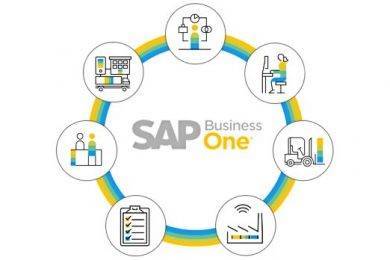Have you ever heard of the acronym ERP? If not, it is time we looked into it, because ERP could turn your business into a more effective and efficient organization. For starters, the acronym ERP stands for Enterprise Resource Planning. Sounds a bit generic, right? Well, let’s see what it means and how ERP helps you in the world of e-commerce.
Enterprise Resource Planning: What is it?
Enterprise Resource Planning refers to software that brings together all facets of an operation. These tools integrate functions such as marketing, human resources, logistics and customer service, all with the intention of making processes more efficient. ERP software automates core processes by collecting orders, reporting on those orders, and collecting and storing information to make each of your departments efficient. In short, enterprise resource planning software has the ability to remove unnecessary tasks and work, which essentially minimizes the amount of work each person in your organization has to do. This saves you money in the end.
The components of an ERP system
Think of all the current software for your business. You might have a customer relationship management tool, a website, and accounting software, supply chain management modules, human resource systems, and email marketing tools. Wouldn’t it be nice if one system brought all these processes together?
This is what enterprise resource planning does for a business.
After all, ERP delivers information after accumulating it in a large database. For example, a CEO can access the software to obtain data or information on the following:
- Payments made by customers
- External payments
- Shipping Statuses
- Products and inventory
- Relations with suppliers
- Details about customers and how your business targets them
What types of companies typically use ERP?
Large companies take advantage of ERP such as SAP Business One much more frequently than small and medium-sized businesses. Why is this the case? Most small businesses could benefit from these tools, but it usually comes down to money. Enterprise resource planning requires a significant amount of cash, as the majority of software options are designed for organizations that can afford to spend large amounts of money each month. Overall, your best bet is to wait until you grow and accumulate more income to support expenses. After all, even articles focused on sharing ERP solutions for small businesses rely on the same expensive solutions.
Main reason companies use ERP
While connecting all the processes and tools in an organization sounds great, the main reason companies are turning to it is for automation. After all, automation offers several opportunities to save money, gain efficiency, and even relocate your workforce elsewhere.
Let us say Company ABC sells gardening products through an online store. Initially, the company has several software modules to perform various tasks throughout the sales and supply chain process. For example, a customer comes to the store and checks out. The site sends them a receipt and captures their email. Company ABC has shipping and marketing processes in place, but none of them connects.
Therefore, an employee must check if the product is in stock and then mark the item as purchased so that the warehouse or supplier can go there. Then someone needs to notify the shipping company and send a shipping confirmation email with a tracking code. Finally, your business wants to drive the customer back to the store, so they have an email-marketing person who sends promotions to the database email list.
My name is Sardar Ayaz a professional content writer and SEO expert having Proven record of excellent writing demonstrated in a professional portfolio Impeccable grasp of the English language, including idioms and current trends in slang and expressions. I have ability to work independently with little or no daily supervision with strong interpersonal skills and willingness to communicate with clients, colleagues, and management.
I can produce well-researched content for publication online and in print, organize writing schedules to complete drafts of content or finished projects within deadlines. I have 12 years’ experience to develop related content for multiple platforms, such as websites, email marketing, product descriptions, videos, and blogs.
I use search engine optimization (SEO) strategies in writing to maximize the online visibility of a website in search results











